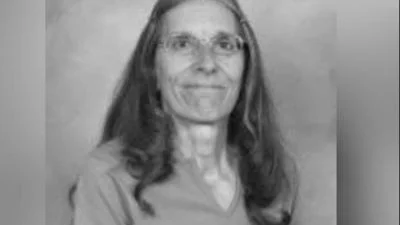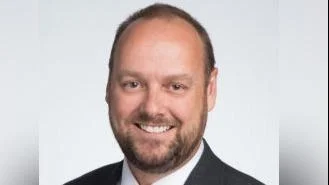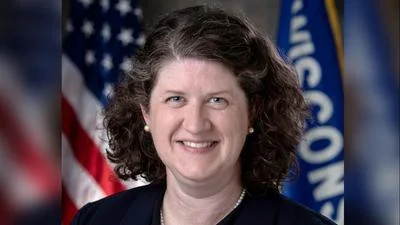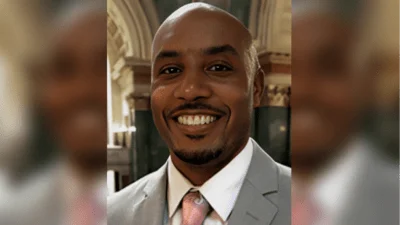Andrew Leavitt, Ph.D. Chancellor | Official website
Andrew Leavitt, Ph.D. Chancellor | Official website
Matt Olsen, a UW Oshkosh nurse anesthesia student, holds a practice EpiPen during a Do It For Dillon training session.
For anyone allergic, a bee sting can cause serious—and potentially life-threatening—anaphylaxis without quick intervention.
Angel and George Mueller, whose 18-year-old son, Dillon, died of an allergic reaction to a bee sting, held anaphylaxis training on Aug. 2 for future nurse anesthetists at UW Oshkosh. They plan to hold a second UWO training on Aug. 19.
In 2014, Dillon Mueller died due to an unknown, undiagnosed bee venom allergy and a lack of epinephrine by volunteer first responders.
The need for a quick response by trained individuals is something faculty and students in the University of Wisconsin Oshkosh College of Nursing are taking seriously. Following Mueller’s parents’ push for more life-saving education, they’ve joined a growing legion of Wisconsinites who are trained in the use of epinephrine pens and keep the medication on hand. Thirty-two participants, mostly students in UWO’s Doctor of Nursing Practice (DNP) nurse anesthesia emphasis program, participated in the first of two training sessions offered at the University. Another UWO session follows on Aug. 19.
The Dillon Mueller Memorial Fund was established in 2015 by his parents and offers the Do It for Dillon certification program for any group that is interested. More than 5,000 people across the state have received free training and are authorized to carry epinephrine.
“I attended one of the courses that was held at Bear Creek Fire Department and received my epinephrine carpujects,” said Mayka Rambo, a faculty member of the UWO nurse anesthesia emphasis program who has a passion for rural health care. “After learning that most rural ambulance services do not carry EpiPens, I thought it would be a great idea for the students to be able to carry their own since they are driving all over the state for clinicals.”
During summer training at UWO, students listened as Angel Mueller recounted her last moments with her son.
“As I stared down at Dillon in his ICU hospital bed in a coma on life support,” she said to the students. “I made the decision right then and there that I was going to do everything in my power to make sure that no other family has to endure such tragedy.”
On an October day in 2014, Dillon was helping a friend with yard work when he was stung by a bee. Within minutes he asked his friend to call 911 before going unconscious. Volunteer first responders did not have epinephrine. After a week of artificial cardiopulmonary support, his family decided to let him pass and improve others' lives through organ donation.
Their dedication led to creating Dillon’s Law allowing trained individuals to carry and administer epinephrine auto-injectors. Since their Do It for Dillon training program began, 15 lives have been saved.
Matt Olsen from Reedsburg was moved by the Mueller story: “Dillon would have been around the same age as me,” said Olsen who had been working as a surgical ICU nurse before attending UW Oshkosh.
Fellow nursing anesthesia student Andrea Sommer applauds Dillon’s parents' efforts: “I think Dillon would be very proud.”
The next Do It for Dillon Epinephrine Training Course will be held on Aug. 19 from 3-4:30 p.m. in UWO Clow Nursing Building Room 151.






 Alerts Sign-up
Alerts Sign-up